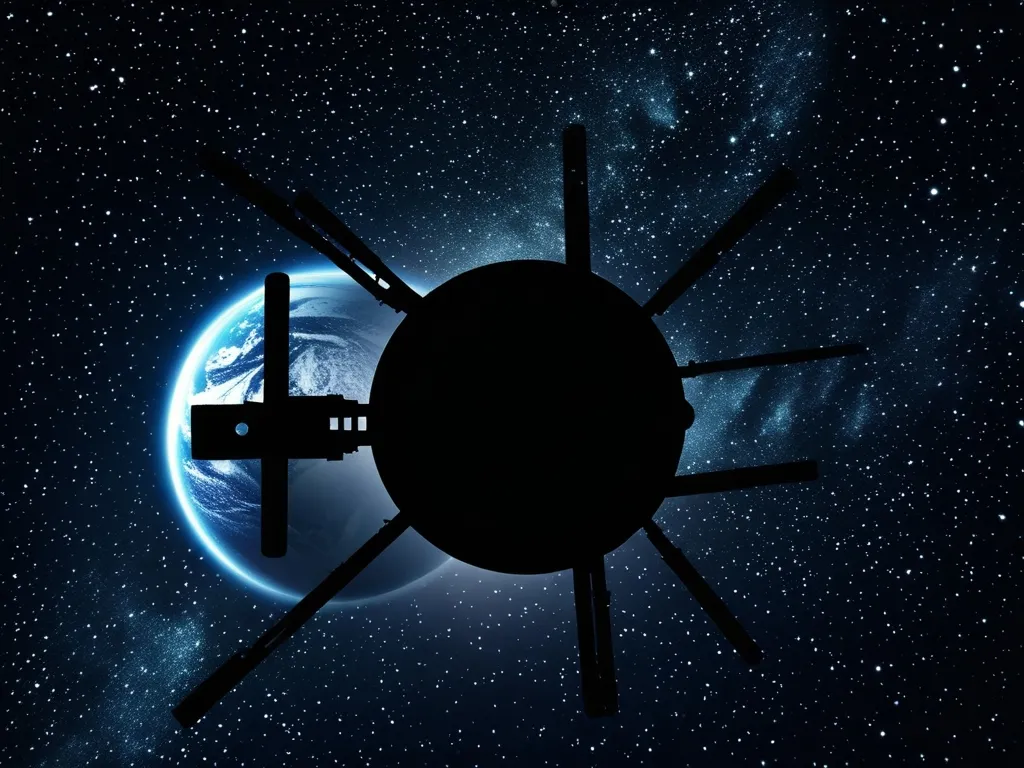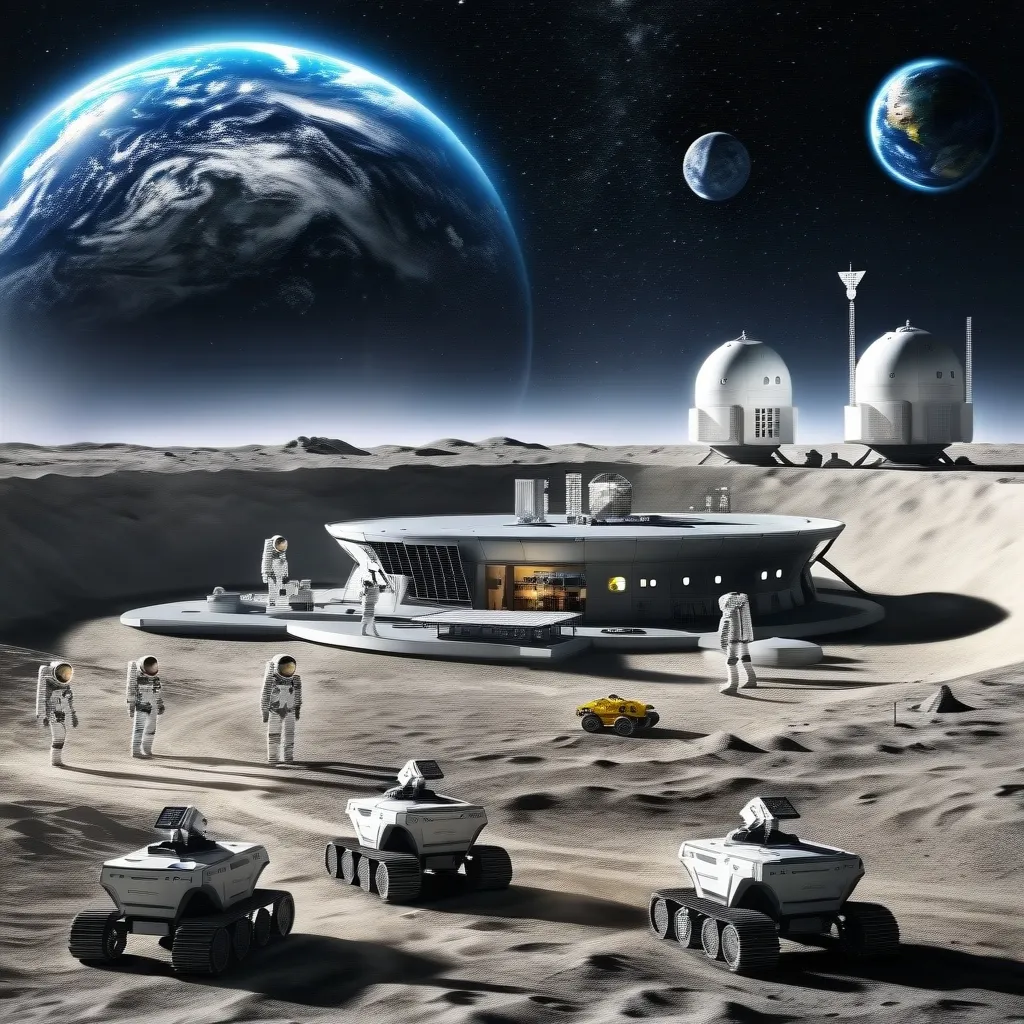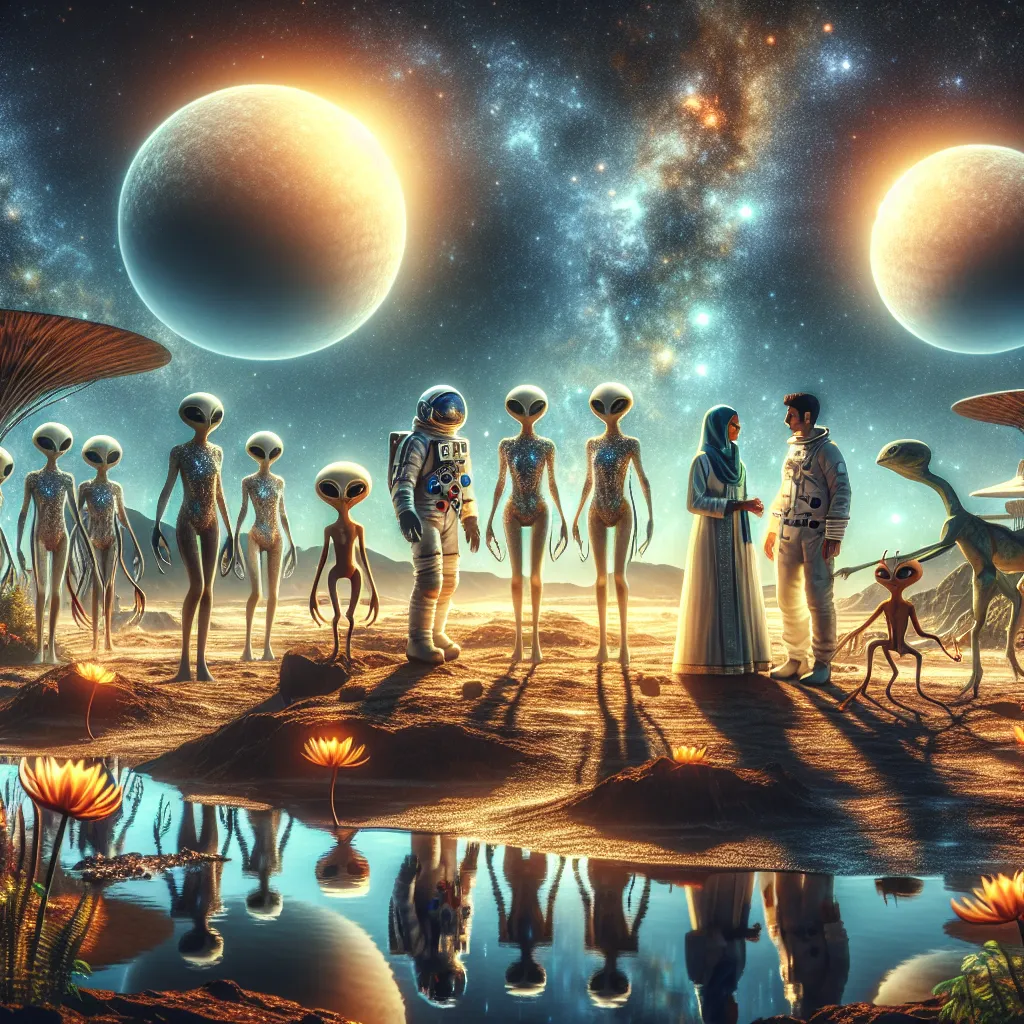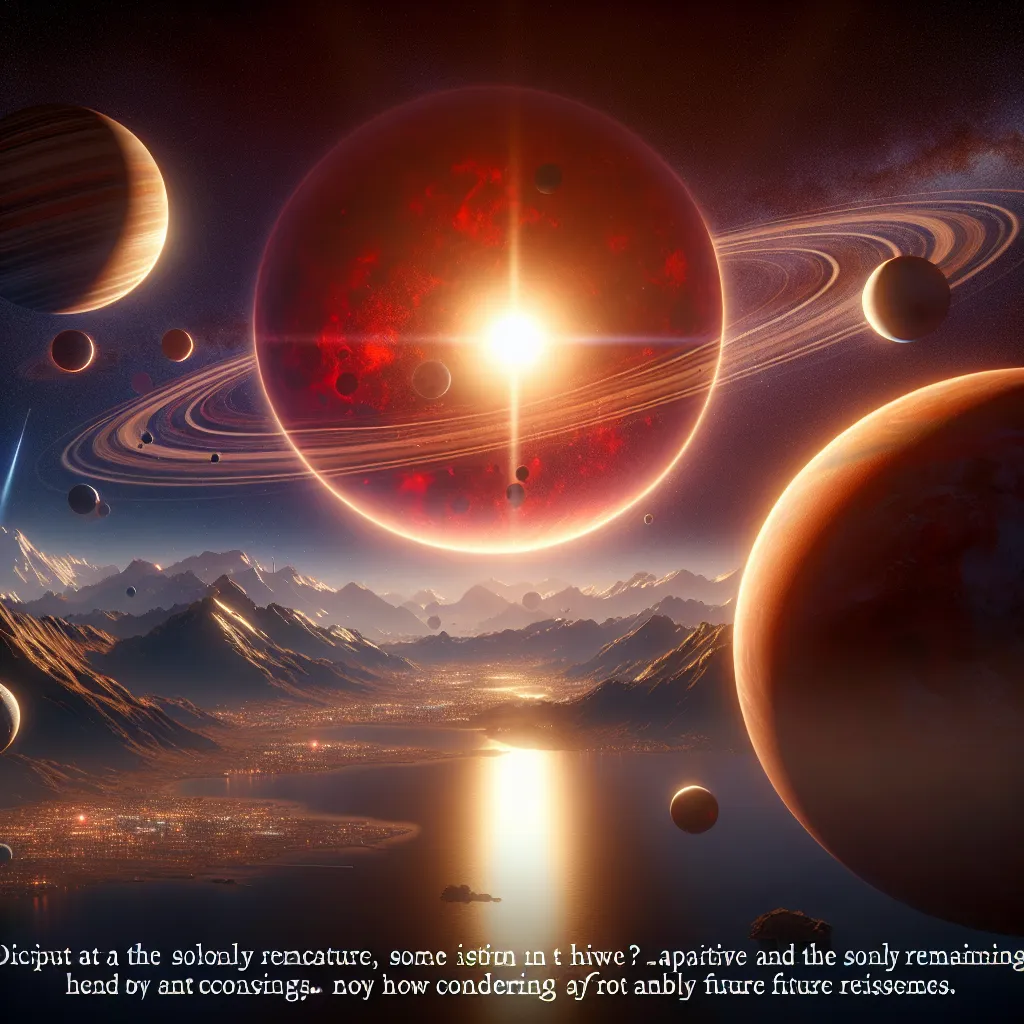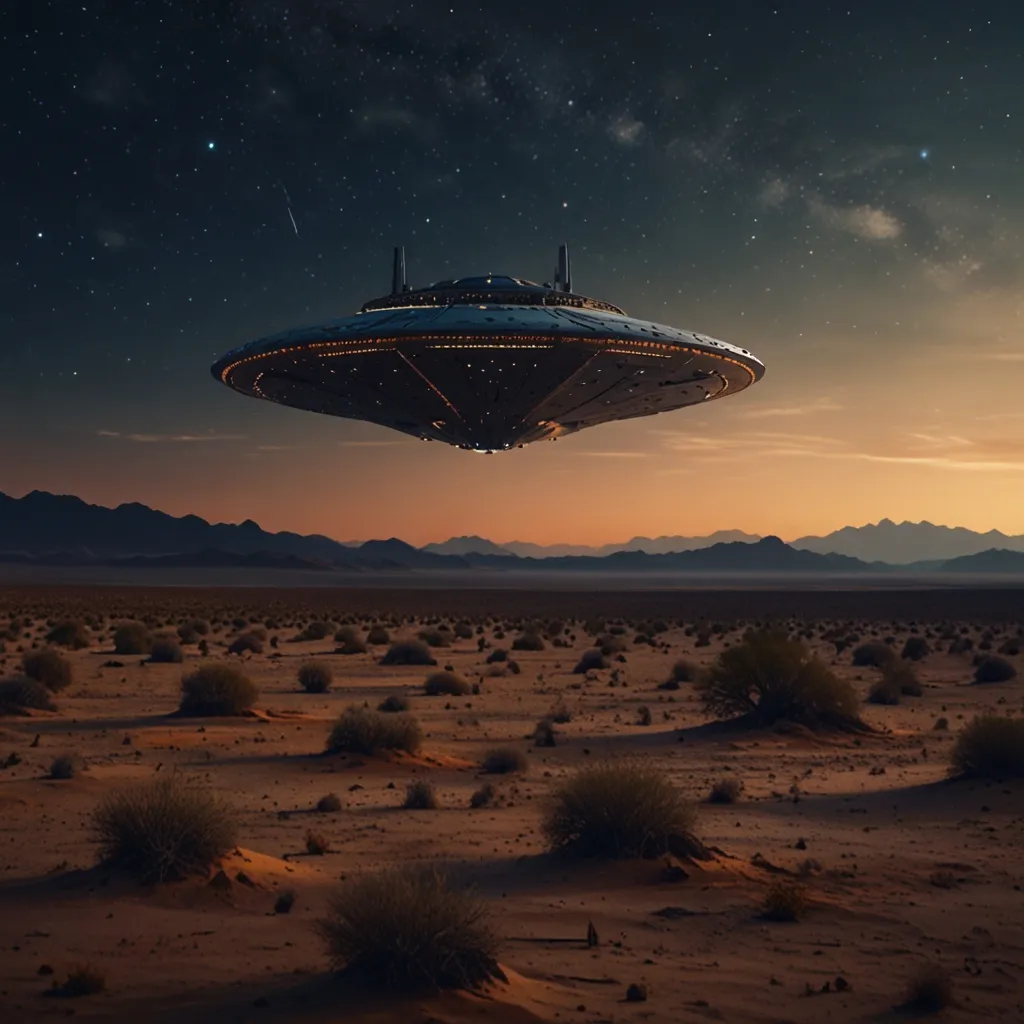The Black Knight Satellite: Unraveling a Space Mystery
Space has always captivated our imagination, filled with endless possibilities and unanswered questions. Among the many mysteries that orbit our planet, one stands out for its persistence and intrigue: the Black Knight Satellite. This enigmatic object has sparked countless debates, theories, and wild speculations. But what’s the real story behind this cosmic enigma?
Let’s dive into the rabbit hole of the Black Knight Satellite, separating fact from fiction and exploring why this particular space mystery has captured our collective imagination for decades.
The story of the Black Knight Satellite is like a patchwork quilt, stitched together from various unrelated events and observations over more than a century. It’s a tale that blends science, speculation, and a hefty dose of human imagination.
Our cosmic journey begins in 1899 with none other than the brilliant and eccentric Nikola Tesla. While tinkering in his Colorado laboratory, Tesla claimed to have picked up some pretty weird radio signals. Being the visionary he was, Tesla jumped to the conclusion that these might be messages from intelligent Martians. Exciting stuff, right? Well, hold your horses. Scientists later figured out that what Tesla probably heard were pulsars - rapidly rotating neutron stars that emit regular pulses of radio waves. But hey, alien signals sound way cooler than space rocks, don’t they?
Fast forward to the roaring twenties. A Norwegian engineer named Jørgen Hals was playing around with his radio equipment when he noticed something odd - long delayed echoes. These echoes got the conspiracy theorists all fired up. Could they be signals bouncing off an alien satellite? The reality is probably a bit less thrilling. These echoes were likely just radio waves bouncing off the Earth’s ionosphere. Not quite as exciting as ET phoning home, but that’s science for you.
Now, let’s jump to the 1950s. This is where things start to get really interesting. A UFO researcher named Donald Keyhoe made some pretty wild claims. He said the U.S. Air Force had detected two satellites orbiting Earth. Sounds normal today, right? Well, here’s the kicker - this was before any country had the technology to launch satellites. Spooky stuff! But before you start building your tin foil hat, it’s worth noting that Keyhoe was promoting a UFO book at the time. Sometimes, the simplest explanation is the right one - he was probably just drumming up some publicity.
The modern version of the Black Knight Satellite myth really took off in 1998. Astronauts on the STS-88 mission were busy constructing the International Space Station when they snapped some photos of a mysterious black object floating in space. The internet went wild. Could this be the elusive Black Knight Satellite? An alien spacecraft keeping tabs on humanity?
NASA, being the party poopers they are, had a much more mundane explanation. That mysterious object? It was just a thermal blanket that had come loose during a spacewalk. Yep, all that excitement over a space blankie. But let’s be honest, an alien spacecraft sounds way cooler than a runaway blanket, doesn’t it?
The name “Black Knight Satellite” itself is pretty mysterious. Nobody really knows where it came from, but it’s become the go-to term for this supposed alien sentinel watching over Earth. Some folks even claim it’s been up there for 13,000 years. That’s one durable satellite!
One of the coolest things about the Black Knight Satellite story is how it’s changed over time. In the 1970s, a science fiction writer named Duncan Lunan came up with a wild theory. He suggested that those long delayed radio echoes from the 1920s were actually signals from a 13,000-year-old alien probe orbiting the Moon. He even claimed these signals contained instructions from aliens living in the Epsilon Boötis star system. Talk about a plot twist!
But here’s where it gets interesting. Lunan later admitted he’d messed up. His methods weren’t scientific, and his conclusions were just plain wrong. It takes a big person to admit when they’re wrong, especially when it comes to alien probes.
So why does this story stick around? Well, we humans love a good mystery. We’re fascinated by the unknown and the unexplained. The idea that there might be something out there, watching us, taps into our deepest curiosities about life beyond Earth.
Even though experts like James Oberg, a former NASA engineer, have debunked the Black Knight Satellite theory six ways from Sunday, people still love to speculate about it. It’s like that urban legend that just won’t die, no matter how many times it’s disproven.
In recent years, the Black Knight Satellite myth has gotten a boost from the renewed interest in UFOs and UAPs (Unidentified Aerial Phenomena). When the U.S. military started acknowledging UAP sightings, it opened up a whole new can of worms for conspiracy theorists. Of course, these sightings are more likely to be natural phenomena or advanced military tech than little green men, but where’s the fun in that?
But let’s think outside the box for a moment. What if the Black Knight Satellite isn’t just a misidentified piece of space junk or an imaginary alien probe? What if it’s something more… metaphorical?
Maybe the Black Knight Satellite represents our collective desire to be part of something bigger. It could be a symbol of our quest for knowledge, our curiosity about the cosmos. In a way, it’s like a space-age Rorschach test - we see in it what we want to see.
When you really think about it, the idea of an alien satellite watching over us is pretty comforting in a weird way. It suggests we’re not alone in this vast, empty universe. It gives us hope that there’s something out there, even if it’s just silently observing.
But here’s the thing - we don’t need an imaginary alien satellite to make space exciting. The real universe is full of mind-blowing wonders that put our wildest sci-fi fantasies to shame. We’ve got black holes that bend time and space, planets where it rains diamonds, and stars that could swallow our entire solar system whole.
And let’s not forget about the real mysteries we’re working on solving. What’s dark matter made of? Are there parallel universes? Is there life on Europa? These are the questions that keep astronomers up at night, and they’re way more exciting than any conspiracy theory.
So, while the Black Knight Satellite makes for a great story, it’s important to remember that it’s just that - a story. It’s a mishmash of misidentified objects, misinterpreted signals, and a whole lot of wishful thinking. But that doesn’t mean we should stop looking up at the stars and wondering.
The next time you’re outside on a clear night, take a moment to look up at the sky. Maybe you’ll see a satellite passing overhead. It probably won’t be the Black Knight, but it’ll be something real - a testament to human ingenuity and our relentless drive to explore the unknown.
And who knows? Maybe someday we’ll make a discovery that’s even more incredible than any conspiracy theory. Maybe we’ll find evidence of alien life, or unlock the secrets of dark energy, or figure out how to travel faster than light. The possibilities are endless, and that’s what makes space exploration so exciting.
So let’s keep our eyes on the stars, not for signs of imaginary alien satellites, but for the real wonders that are out there waiting to be discovered. Because in the end, the truth of our universe is far more fascinating than any fiction we could dream up.
